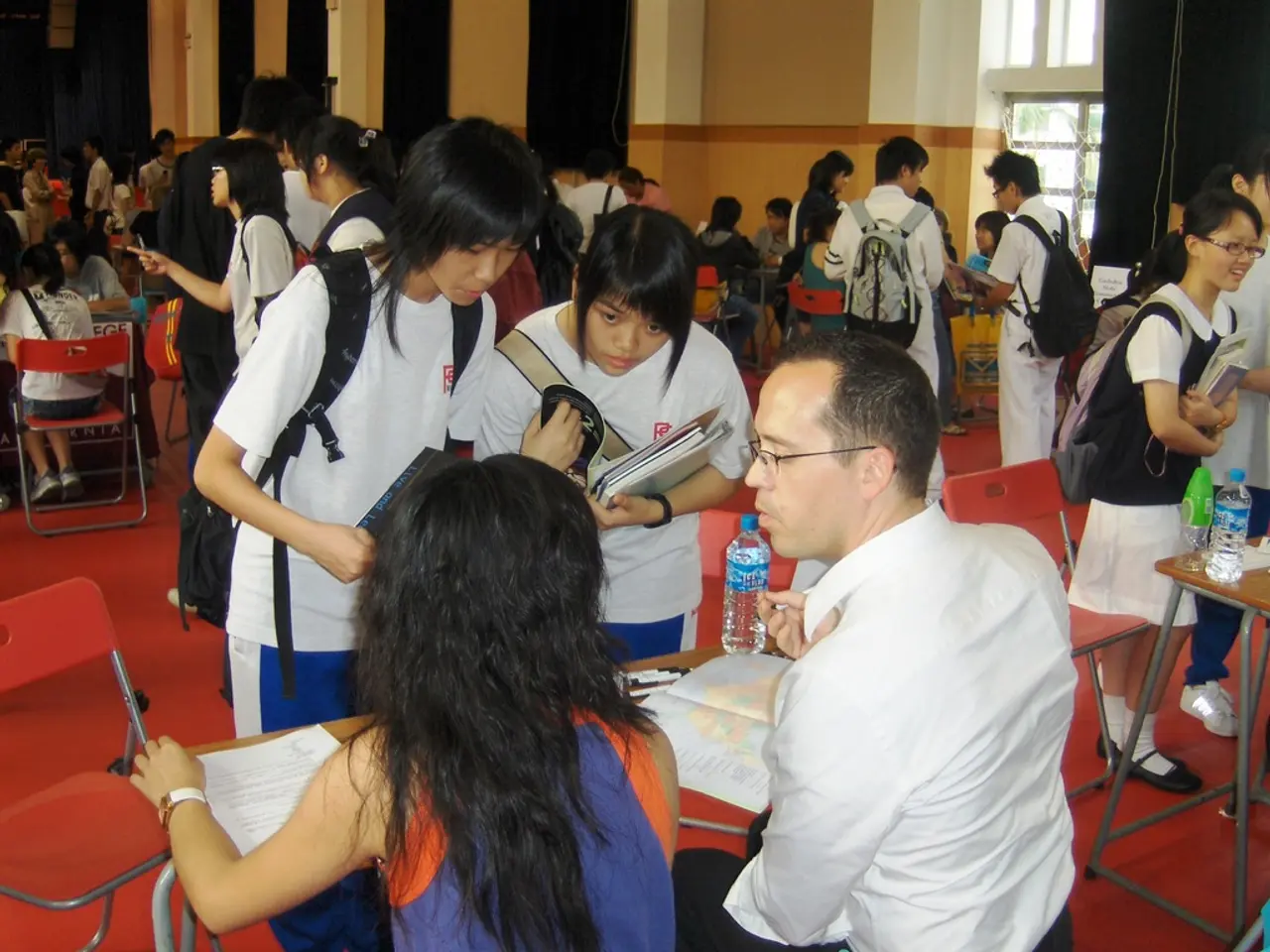Humans' reciprocal responsibilities: A look into mutual obligations
In the hallowed halls of MIT, a unique course is stirring up thoughtful debates and fostering critical thinking among students. The Compass Course, officially known as 21.01: Compass Course: Love, Death, and Taxes: How to Think - and Talk to Others - About Being Human, is a multidisciplinary class that delves into the complexities of human values, knowledge, and responsibilities.
This innovative course, part of the Compass Initiative led by faculty from the MIT School of Humanities, Arts, and Social Sciences (SHASS), adopts a "flipped classroom" approach. Students watch recorded lectures at home and come prepared for in-class discussions and debates, engaging with fundamental questions about what they value and why, as well as how to think and talk to others about being human.
Each student is assigned a persona from a 1976 Cambridge City Council hearing debating recombinant DNA research. For instance, second-year mechanical engineering major Kayode Dada found himself representing a figure whose views contradicted his own: James D. Watson. This role-playing exercise not only encourages critical thinking but also helps students navigate diverse perspectives and ethical dilemmas.
Kayode Dada, who signed up for the class to fulfill a communications-intensive requirement and for cross-departmental exposure, found the course to be more than he expected. After doing a values exercise in the class, he identified practicing Christianity, hard work, helping others, and contributing to society as central to his belief system. As a result, he chose to volunteer at a robotics camp for kids in Louisville to share his MIT education with others.
The course, co-taught by two faculty members, combines disciplines and perspectives, providing a comprehensive view of the topics at hand. It begins with students investigating questions of value, then grapples with the concept of a merit-based society, questions what humans really know to be true, and ends with challenging debates about what humans owe one another.
First-year student-athlete Shannon Cordle, who didn't know what to expect from Compass, found it helped her practice speaking up and being willing to be wrong. The class aims to equip students not only with scientific and engineering skills but also with tools to understand and navigate diverse perspectives and ethical dilemmas.
The Compass Initiative is supported by the Office of the Vice Chancellor and the MIT Human Insight Collaborative's SHASS Education Innovation Fund. There are plans to adapt the residential version of this class for online learners on MITx, making this transformative learning experience accessible to a wider audience.
As Professor Lily L. Tsai, who oversees the course, highlights, the Compass Course enables students to confront unpredictability in the world responsibly and thoughtfully. By using the humanities and social sciences as a guide, students are encouraged to imagine the kind of people and society they want to create, emphasizing moral and civic education amid rapid technological and social change.
- The faculty from the MIT School of Humanities, Arts, and Social Sciences (SHASS) lead the Compass Initiative.
- The Compass Course is a multidisciplinary class that explores human values, knowledge, and responsibilities.
- Students watch recorded lectures at home and have in-class discussions and debates in a 'flipped classroom' approach.
- Students are assigned personas from a 1976 Cambridge City Council hearing to encourage critical thinking and navigating diverse perspectives.
- Kayode Dada, a second-year mechanical engineering major, found the course valuable and chose to volunteer at a robotics camp for children.
- The course covers topics like a merit-based society, knowledge, ethical dilemmas, and societal obligations.
- Shannon Cordle, a first-year student-athlete, found the class helpful in practicing speaking up and being wrong.
- The Compass Initiative receives support from the Office of the Vice Chancellor and MIT's SHASS Education Innovation Fund.
- Plans are underway to adapt the residential version of the class for online learners on MITx, making it accessible to a wider audience.
- Professor Lily L. Tsai emphasizes that the Compass Course equips students to deal with world unpredictability responsibly and thoughtfully.
- By using the humanities and social sciences, students are encouraged to imagine the kind of people and society they want to create amid rapid technological and social change.
- Beyond scientific and engineering skills, the Compass Course aims to provide students with tools for understanding and navigating diverse perspectives and ethical dilemmas.
- This innovative class fosters critical thinking, facilitates personal growth, and supports lifelong learning, emphasizing education-and-self-development and mental well-being, both in a classroom setting and within society.




